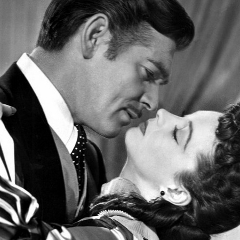Edward De Bono defines proactive thinking as an attitude in which we don't just let things happen, but we become an active part of our destiny, ready to face the consequences.

Written and verified by the psychologist GetPersonalGrowth.
Last update: 15 November 2021
To take the reins of our destiny in hand, it is necessary to react, to have the courage to carry out actions and to be an active part of them. One way to do this is to apply proactivity. Proactive thinking allows us to face reality creatively, agile and in tune with the changing life. Essentially, it means taking advantage of our motivation.
One of the qualities that defines a leader is his vision of the future and his admirable ability to turn it into reality. Of course, no one has a crystal ball that can accurately anticipate the events that will occur. Nonetheless, when we are faced with reality (whether we like it or not) we have two options: to apply reactive or proactive thinking.
The first defines that attitude in which we limit ourselves almost exclusively to reacting to events. It is like someone who, walking along a path, suddenly gets hit by a tree branch and cries out in pain.
We then have another chance. The one in which we don't just let things happen, but we dodge the branch by planning another way to enter a leafy and dangerous path. We can, in other words, decide to apply proactive thinking, prepare a plan and avoid - as far as possible - being affected by the circumstances.
Such an attitude offers great benefits. Edward De Bono, a reference point in the field of creativity, defines proactive thinking as a "deliberate act" that we should train to improve our quality of life.
"Vision is the art of seeing invisible things."
– Jonathan Swift –
The power of proactive thinking: aspiring to a more positive (and healthier) future
Psychologists Stephanie Jean Sohl and Anne Moyer of the University of Stony Brook conducted in 2009 an interesting study on the relationship between stress and proactivity. According to the results of this research, people who implement proactive coping strategies are more likely to develop a condition of well-being. Applying proactive thinking, according to the two psychologists, is based on two simple strategies:
- The first is to ask proactive questions. It is simply a question of “What do I need to feel good in the long and short term?”. "What changes should I make to achieve my goals?".
- The second strategy is based on the collection of preventive ideas. In other words, devising a strategy. For example, if I'm afraid of losing my job, I should start thinking about a plan B.
Let's see what other factors define proactive thinking.
Positive, creative and flexible mindset
Edward De Bono used to say that sometimes the smartest people are also the least proactive. This seemingly contradictory statement has an explanation.
- To anticipate the future in an effective, original and positive way, we need to produce many ideas, be creative.
- Some bright people are adept at understanding the complex aspects of reality, but are unable to provide alternatives or new solutions.
- Proactive thinking needs to go beyond the present, it requires a visionary and very flexible attitude.
- It is not a question of being "deep thinkers" but of rather be “flexible and extremely original thinkers”.
Beyond that, but not least, to be proactive it is necessary to apply an openly positive attitude to this view. Being optimistic, having confidence in your own abilities and aspiring for something better is the essence of the power of proactive thinking.
Tolerance to frustration
Frustration is like an emotional bomb ready to explode inside us when things don't go as we hope. Few psychological dimensions are so difficult and uncomfortable to manage. It is crucial, however, to learn to tolerate the stones found along the way to goals.
Proactive people, who apply this way of thinking deliberately and optimistically, have learned to live with frustration as well. Knowing that difficulties can arise in every journey, they anticipate them and study ways to avoid tripping.
Reality is full of patterns
Life is made up of patterns. Maybe we don't realize it, but they are there, latent, orchestrated by a daily flow made up of facts that can be anticipated, stimuli that activate processes, actions that have consequences.
The proactive person learns to observe, analyze and exercise an intuitive view of things. Gradually he realizes that life takes a turn that is not always unexpected. Feeling the presence of a pattern allows you to be prepared, think about response strategies and act effectively.
The power of proactive thinking needs mental calm to express itself
If you've been just reacting to events for some time instead of being proactive, you should take a break. When facing a large number of events, the ideal is to catch your breath and take advantage to elaborate, regain courage, energy and strength.
Once we have achieved a good mental calm, we are able to see things in another way. Proactive thinking appears when we have regained motivation, clarity and hope. This is the perfect place to start acting and stop reacting.


























